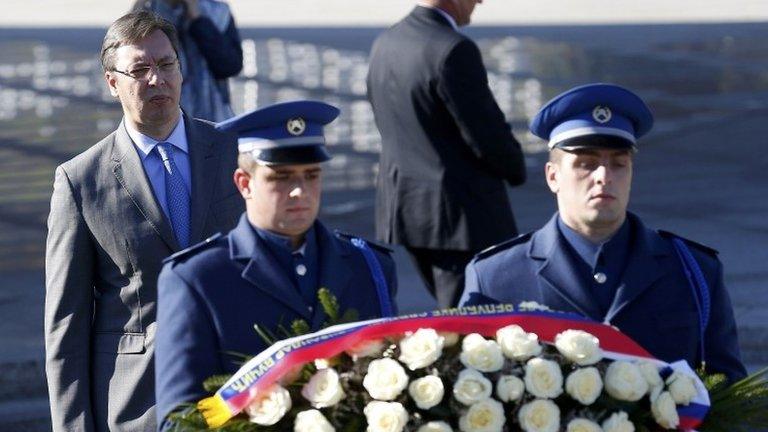Serbia elects Prime Minister Aleksandar Vucic as president
- Published
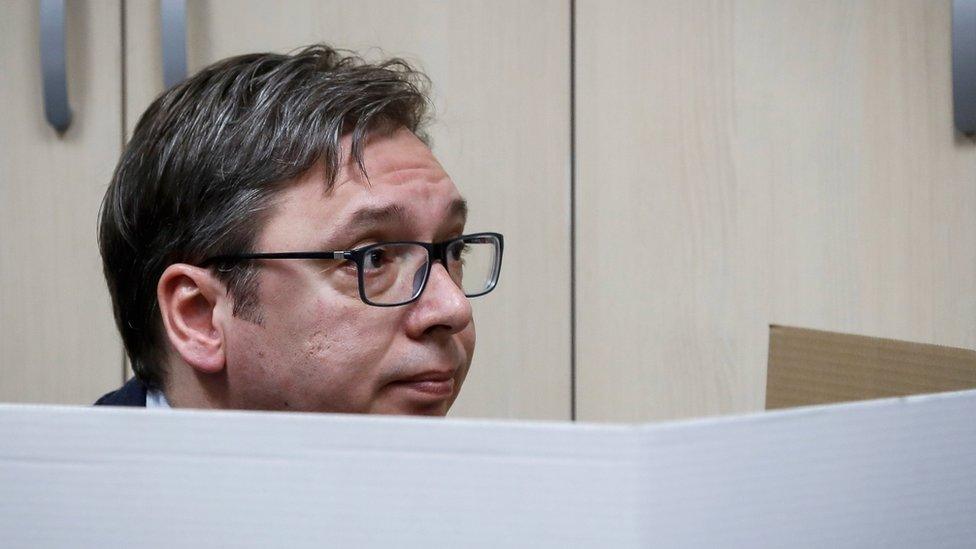
Serbian Prime Minister Aleksandar Vucic looks set to be president
Serbian Prime Minister Aleksandar Vucic has won a clear victory in the country's presidential election.
He won about 55%, well above the threshold to avoid a run-off, with most results counted.
His closest challenger, Sasa Jankovic, polled 16%, while satirical candidate Ljubisa Preletacevic came third with 9% of the vote.
Mr Vucic is pro-EU, but is accused by his rivals of using the election to tighten his grip on power.
Declaring victory, Mr Vucic said the people had voted for his policy of joining the EU without turning away from traditional allies Russia and China.
"This shows in what direction Serbia wants to go. It has been important for this victory to be as clear as a tear drop to not allow anyone to make a random interpretation of the difference that has been made."
He became prime minister after his pro-EU nationalist Progressive Party won a landslide victory in early parliamentary elections in 2014.
In the latest campaign, the 47-year-old highlighted Serbia's economic growth under his tenure.
He was previously a radical Serb nationalist who served under President Slobodan Milosevic in the late 1990s.
But in 2008, he left the country's Radical party to help found the moderate Progressive Party, signalling a clear break with his nationalist past.
"I do not hide that I have changed... I am proud of that," he told the AFP news agency in a 2012 interview.
But his past has followed him nonetheless.
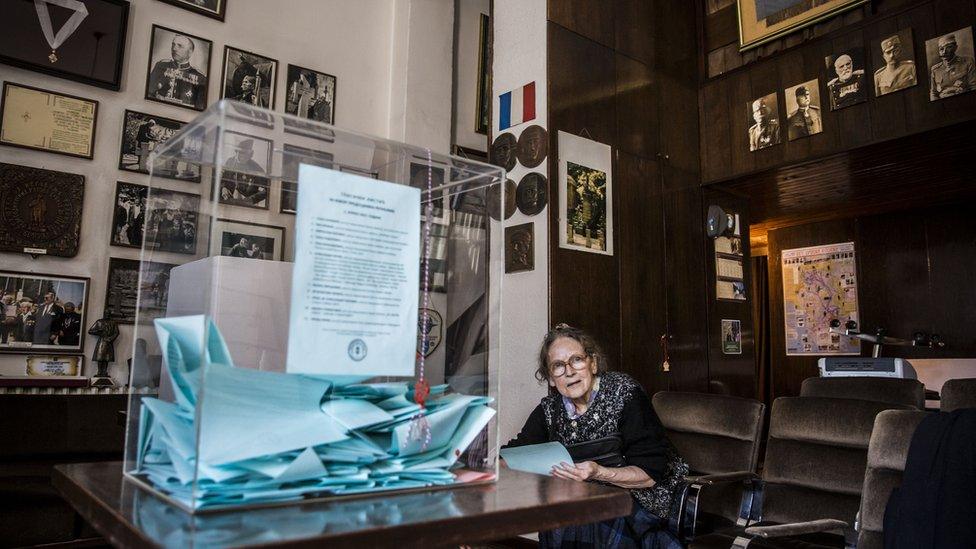
Serbia has 6.7 million registered voters
In 2015, he fled a ceremony marking the 20th anniversary of the Srebrenica massacre, when the crowd turned on him.
The massacre saw about 8,000 Bosnian Muslims killed at the hands of Serb forces.
Mr Vucic was a member of the national assembly at the time, and famously said "you kill one Serb and we will kill 100 Muslims" just days after the massacre.
But in recent years, he has called for conciliation. Months after he was chased from the anniversary ceremony, he returned to the memorial site to pay his respects.
Up until now, the role of the president has been largely ceremonial, but it is thought it will become more influential under Mr Vucic.
But he denied the suggestion, saying: "They can say whatever they want. I will respect Serbia's constitution. That is my obligation and that is what I will do."
- Published1 April 2017
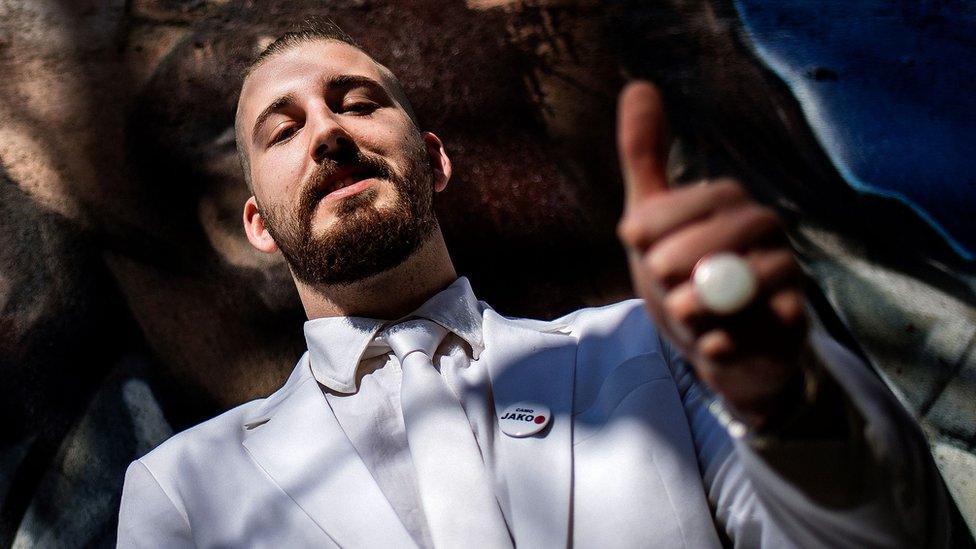
- Published30 March 2017
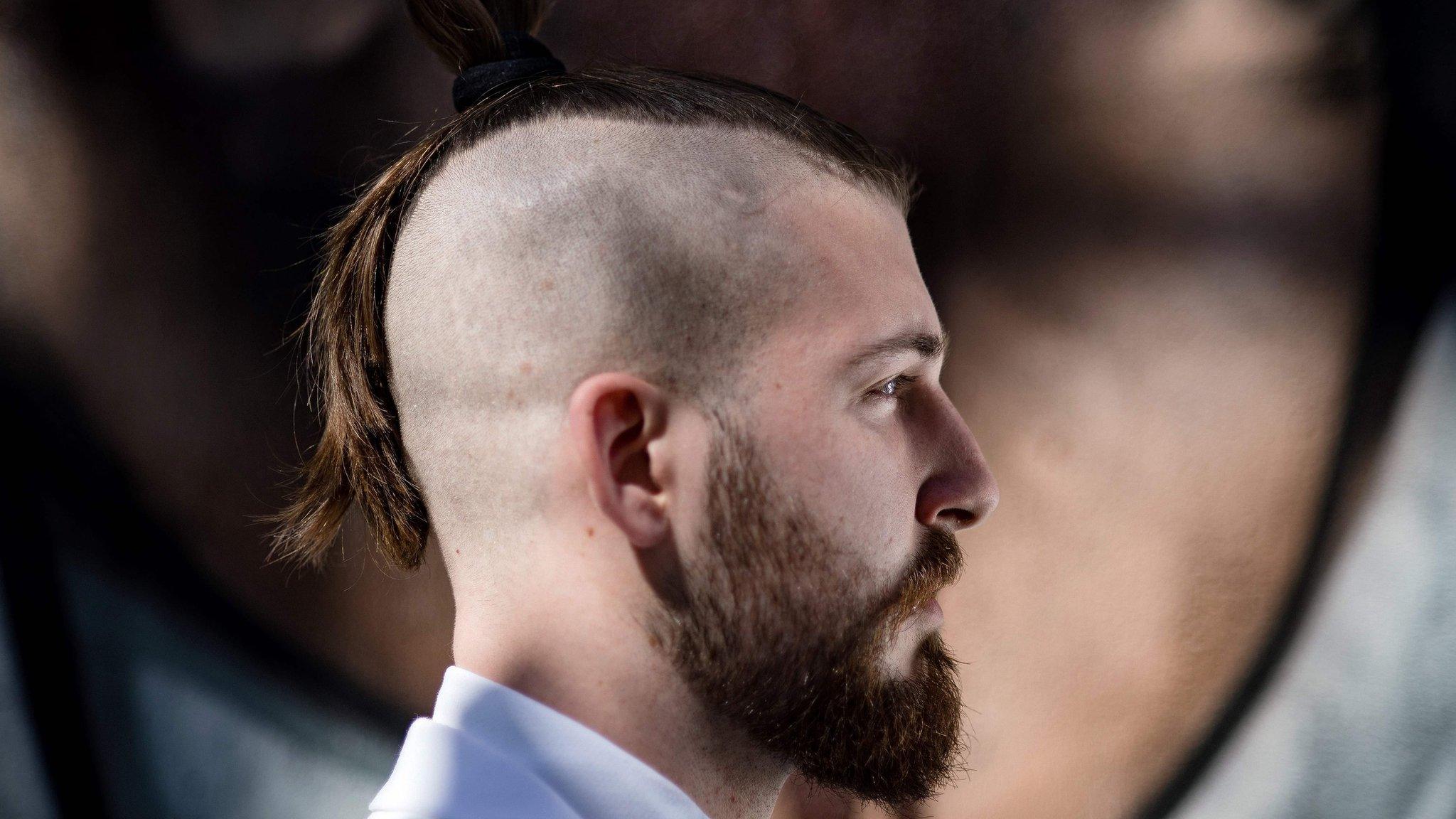
- Published18 January 2017

- Published11 November 2015
